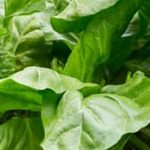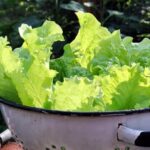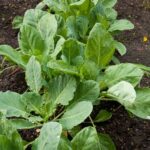Compost is a vital ingredient for successful vegetable gardens, providing essential nutrients and fostering sustainable gardening practices. This nutrient-rich organic matter plays a crucial role in promoting healthy plant growth while also benefiting the environment. In this article, we will explore the significance of compost in vegetable gardening and provide valuable insights on how to effectively incorporate it into your gardening routine.
Compost serves as a natural source of vital nutrients such as nitrogen, phosphorus, and potassium, which are essential for the development of robust and productive vegetable plants. By utilizing compost in your garden, you not only enhance the fertility of the soil but also reduce the reliance on synthetic fertilizers, thereby contributing to eco-friendly and sustainable gardening practices.
Furthermore, composting organic materials like kitchen scraps and yard waste not only diverts these materials from landfills but also helps in reducing greenhouse gas emissions. Embracing composting as a part of your vegetable gardening approach not only benefits your plants but also supports environmental conservation efforts.
In the following sections, we will delve into various aspects of using compost for vegetable gardens, such as types of compost, making your own compost, choosing the right compost for specific vegetables, application techniques, troubleshooting common issues with composting, and maintaining a healthy compost system for long-term success.
Types of Compost for Vegetable Gardens
When it comes to selecting the right compost for your vegetable garden, there are several options to consider. Each type of compost has its own benefits and limitations, so it’s important to understand which one will work best for your specific gardening needs.
Here are the different types of compost that you can use for your vegetable garden:
1. Homemade Compost: Making your own compost at home is a cost-effective and sustainable option. It allows you to control the ingredients and quality of the compost, ensuring that it is free from harmful chemicals or pesticides. However, homemade compost may take longer to produce and may not always provide consistent nutrient levels for optimal plant growth.
2. Commercial Compost: This is a convenient option for gardeners who do not have the time or resources to create their own compost. Commercially produced compost is often formulated with a balanced mix of organic materials and nutrients, making it suitable for a wide range of vegetables. However, be mindful of the source and quality of commercial compost to avoid any potential contaminants or synthetic additives.
3. Vermicompost: Also known as worm castings, vermicompost is created through the process of vermicomposting using earthworms. This type of compost is rich in beneficial microbes and enzymes, making it an excellent choice for promoting soil health and fertility in vegetable gardens. While vermicompost may be more expensive than other types, its superior nutrient content can lead to higher yields and overall plant vitality.
When choosing the right type of compost for your vegetable garden, consider factors such as nutrient content, availability, cost, and sustainability. Additionally, keep in mind the specific needs of your vegetables when deciding which type of compost to use in order to promote healthy growth and bountiful harvests.
Making Your Own Compost
Creating your own compost is a cost-effective and sustainable way to provide the necessary nutrients for your vegetable garden. Compost is a nutrient-rich, organic matter that provides essential minerals and improves soil structure, which in turn promotes healthy plant growth. By making your own compost, you not only reduce waste going into landfills but also minimize the need for chemical fertilizers that can be harmful to the environment.
To create your own compost, start by selecting an appropriate location for your compost pile or bin. This can be in a corner of your yard or even in a designated composting area. Next, gather organic materials such as fruit and vegetable scraps, coffee grounds, eggshells, grass clippings, leaves, and small branches. It’s important to avoid adding meat or dairy products to prevent attracting pests.
Layer the organic materials in the compost pile or bin, alternating between green materials (rich in nitrogen) and brown materials (rich in carbon). Keeping the compost moist and turning it regularly will help accelerate decomposition. With time and proper maintenance, you will have nutrient-rich compost to be used for vegetable gardens that will help improve soil fertility and promote healthy plant growth.
It’s worth noting that proper air circulation is crucial for successful composting. Ensure that your compost pile or bin has adequate ventilation to prevent foul odors from forming. Additionally, monitoring the temperature of the compost can help determine when it’s ready to be used in your vegetable garden.
| Organic Materials | Examples |
|---|---|
| Green Materials | Fruit & vegetable scraps, coffee grounds |
| Brown Materials | Leaves, small branches |
Choosing the Right Compost for Specific Vegetables
When it comes to choosing the right compost for specific vegetables, it’s essential to consider the specific nutrient needs of each type of plant. Different vegetables require different levels of nutrients to thrive, so selecting the appropriate compost is crucial for their healthy growth. Here are some recommendations for using compost with popular vegetables:
- Tomatoes: Tomatoes are heavy feeders and require a well-balanced soil with plenty of nutrients. Using high-quality homemade compost or vermicompost rich in organic matter can help provide the necessary nutrients for healthy tomato plants.
- Peppers: Peppers also benefit from a nutrient-rich soil. Mixing in commercial compost with a balanced blend of organic materials can help promote strong root development and abundant fruit production.
- Lettuce: Lettuce prefers a soil that is high in nitrogen, which promotes leafy growth. Incorporating homemade compost with a higher nitrogen content or adding organic material like aged manure can support the vigorous growth of lettuce plants.
It’s important to note that while these are general recommendations, the specific needs of each vegetable may vary based on factors such as climate, soil composition, and individual garden conditions.
When choosing the right type of compost for specific vegetables, it’s also important to consider any limitations or potential challenges associated with each type:
- Homemade Compost: While homemade compost is cost-effective and customizable, it may not always provide a consistent nutrient balance, especially if proper care and maintenance are not followed.
- Commercial Compost: Commercially produced compost offers convenience and consistency in nutrient content, but some products may contain additives or synthetic materials that could affect plant health or soil quality.
- Vermicompost: Vermicompost is rich in beneficial microorganisms and has excellent moisture retention properties. However, sourcing high-quality vermicompost may be more challenging compared to other types of compost.
By considering these factors and understanding the specific nutrient needs of different vegetables, gardeners can make informed decisions about which type of compost will best support the health and vigor of their vegetable plants. Whether using store-bought options or creating homemade blends, selecting the right compost is an essential step towards maintaining thriving vegetable gardens.
Application and Mixing of Compost
When it comes to the application and mixing of compost for vegetable gardens, there are several important factors to consider in order to ensure optimal results. First and foremost, it’s essential to understand the specific nutrient needs of the vegetables you are growing. Different plants require different levels of nutrients, so it’s important to tailor your compost application accordingly.
One effective method for applying compost to a vegetable garden is to spread a layer of compost over the soil and then mix it thoroughly using a garden fork or tiller. This helps to ensure that the nutrients from the compost are evenly distributed throughout the soil, providing essential nourishment for your vegetable plants. It’s important not to apply too much compost, as this can lead to nutrient imbalances and potential harm to your plants.
In addition to mixing compost into the soil at planting time, you can also use compost as a top dressing throughout the growing season. This involves adding a thin layer of compost around the base of your plants, which provides a slow release of nutrients as it breaks down. This method can be particularly beneficial for heavy feeders like tomatoes and peppers.
Proper mixing techniques will help ensure that your vegetable garden receives all the necessary nutrients from the compost. By following best practices for application and mixing, you can maximize the benefits of using compost in your vegetable garden, leading to healthier plants and higher yields.
| Vegetable | Recommended Compost Type |
|---|---|
| Tomatoes | Homemade or vermicompost |
| Peppers | Commercial or homemade compost |
| Lettuce | Vermicompost or commercial compost with added nitrogen |
Composting Troubleshooting
Common Issues
When using compost in vegetable gardens, there are several common issues that gardeners may encounter. One of the most common problems is a foul odor emanating from the compost pile, which can be indicative of excessive moisture or lack of airflow.
Another issue is the presence of pests such as fruit flies and rodents, especially if food scraps are not properly covered or buried within the compost. Additionally, nutrient imbalances can occur if the compost is not properly mixed or if certain organic materials are overabundant in the pile.
Solutions
To address the issue of foul odors in the compost pile, it’s essential to ensure proper aeration and drainage to prevent anaerobic conditions. This can be achieved by regularly turning the compost with a pitchfork or shovel to introduce more oxygen and promote decomposition. Covering food scraps with a layer of carbon-rich materials like leaves or straw can also help reduce odors and discourage pests.
To prevent pests from infesting the compost, it’s important to bury kitchen waste at least 10 inches deep within the pile and maintain a balanced mix of green and brown materials. The use of a tightly sealed compost bin can also help keep rodents and flies at bay. In cases where nutrient imbalances arise, adjusting the ratio of carbon-rich to nitrogen-rich materials in the compost pile can help rectify this issue.
Long-Term Maintenance
In addition to troubleshooting immediate issues with composting, long-term maintenance is crucial for ensuring ongoing success in vegetable gardens. Regularly turning and aerating the compost pile will promote decomposition and prevent odor and pest problems. Adding new organic materials on a consistent basis will help replenish nutrients within the compost, while also preventing any potential imbalances.
It’s also important to monitor moisture levels and adjust as needed to maintain optimal conditions for decomposition. By addressing these common issues and practicing good long-term maintenance, gardeners can continue to utilize high-quality compost for their vegetable gardens year after year.
Maintaining Compost for Long-Term Vegetable Garden Success
Maintaining a healthy composting system is essential for long-term success in vegetable gardening. With the right maintenance and care, compost can continue to provide essential nutrients for your vegetable plants, leading to bountiful harvests year after year.
Compost Turning and Aeration
Regularly turning the compost pile is crucial for maintaining proper aeration. This process helps prevent the formation of odors and ensures that beneficial microorganisms can thrive and break down organic materials effectively. Aim to turn your compost pile at least once a week to promote decomposition and prevent the buildup of anaerobic conditions that can lead to foul smells.
Adding New Materials
As your current compost pile reaches maturity, it’s important to continue adding new organic materials to maintain a steady supply of nutrient-rich compost for your vegetable garden. Different types of organic matter, such as kitchen scraps, yard waste, and plant trimmings, can be added to keep the composting process active. By regularly adding new materials, you can ensure that there is a consistent supply of compost ready for use in your garden.
Preventing Contamination
To maintain high-quality compost suitable for vegetable gardens, it’s essential to prevent contamination from undesirable substances such as chemicals or diseased plant material. Be mindful of what you add to your compost pile and avoid including items like meat, dairy products, or weeds with mature seeds.
Additionally, steer clear of adding plants that have been treated with pesticides or herbicides. By being selective with the materials you include in your compost, you can maintain its purity and ensure that it remains safe and beneficial for your vegetable garden.
By following these maintenance tips for your composting system, you can ensure a continuous supply of nutrient-rich compost for your vegetable garden. With proper care and attention, your compost will contribute to the health and productivity of your vegetables while also promoting sustainable gardening practices.
Final Thoughts
In conclusion, it is evident that the use of compost in vegetable gardens provides numerous benefits for both the plants and the environment. Not only does compost supply essential nutrients for robust and healthy vegetable growth, but it also contributes to sustainable gardening practices by reducing waste and promoting soil health. Whether utilizing homemade, commercial, or vermicompost, gardeners have a variety of options to choose from when it comes to selecting the right type of compost for their vegetable gardens.
When making your own compost, following a step-by-step guide and incorporating organic materials can lead to optimal results. By understanding the specific nutrient needs of different vegetables like tomatoes, peppers, and lettuce, gardeners can choose the best types of compost to use for each plant. Furthermore, proper application and mixing techniques ensure that nutrients are evenly distributed in the soil, promoting healthy growth and abundant harvests.
Frequently Asked Questions
What Type of Compost Is Best for Vegetable Garden?
The best type of compost for a vegetable garden is one that is rich in organic matter, such as kitchen scraps, yard waste, and manure. This type of compost provides essential nutrients for healthy plant growth and helps improve soil structure.
What Compost Mix for Vegetable Garden?
A good compost mix for a vegetable garden includes a combination of green materials like grass clippings and fruit/vegetable scraps, brown materials like dead leaves and straw, and some moisture to aid in the decomposition process. This balanced mix creates nutrient-rich soil for vegetables to thrive in.
What Is the Best Compost Recipe for Vegetable Garden?
The best compost recipe for a vegetable garden typically includes a mixture of different types of organic matter, such as kitchen waste, yard trimmings, and even shredded paper or cardboard. Adding some water and turning the compost regularly helps speed up the decomposition process, yielding high-quality compost for the garden.

If you’re looking to get into vegetable gardening, or are just looking for some tips on how to make your current garden better, then you’ve come to the right place! My name is Ethel and I have been gardening for years. In this blog, I’m going to share with you some of my best tips on how to create a successful vegetable garden.





